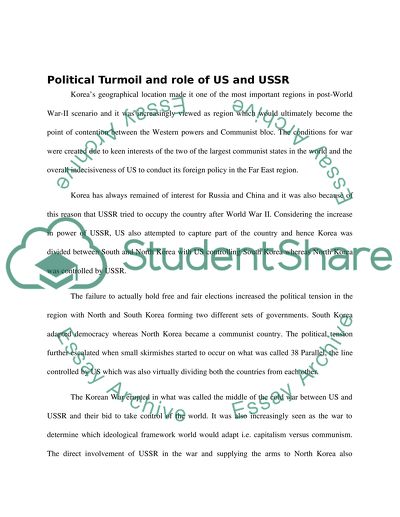Cite this document
(“Why did the Korean War become an international conflict Essay”, n.d.)
Retrieved from https://studentshare.org/history/1403597-why-did-the-korean-war-become-an-international
Retrieved from https://studentshare.org/history/1403597-why-did-the-korean-war-become-an-international
(Why Did the Korean War Become an International Conflict Essay)
https://studentshare.org/history/1403597-why-did-the-korean-war-become-an-international.
https://studentshare.org/history/1403597-why-did-the-korean-war-become-an-international.
“Why Did the Korean War Become an International Conflict Essay”, n.d. https://studentshare.org/history/1403597-why-did-the-korean-war-become-an-international.


